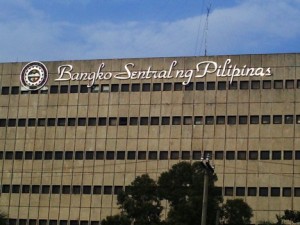BSP sees no harm in Fed tapering call
The Bangko Sentral ng Pilipinas (BSP) remains unfazed by the surprise tapering this week of the US Federal Reserve’s massive bond-buying program, saying there is little need to adjust current monetary settings.
BSP Governor Amando M. Tetangco Jr. welcomed the Fed’s decision to cut its asset purchases by $10 billion to $75 billion starting January, describing the present state of the US economy as a “return to normalcy.”
“This means the US economy is growing with some traction setting in, which in turn is positive for trade in emerging markets,” Tetangco said on Thursday.
“The Philippine fundamentals remain solid and policy settings continue to be appropriate. The BSP is watching developments if there is any need to fine-tune policy,” he explained.
The US Federal Reserve defied expectations this week when it announced a reduction in its unprecedented bond-buying program amid signs of a more solid recovery of the world’s largest economy.
Article continues after this advertisement“The improvement in economic activity and labor market conditions over that period [is] consistent with growing underlying strength in the broader economy,” the Fed’s policymaking body, the Federal Open Market Committee (FOMC), said on Thursday Manila time.
Article continues after this advertisementThe FOMC said it would slow down its monthly purchases of asset-backed securities and US treasuries by $10 billion to $75 billion. The tapering of this form of monetary stimulus, otherwise known as quantitative easing (QE) program, aims to let the US economy stand on its own two feet.
The US economy grew at a faster-than-expected 3.6 percent in the third quarter of this year. Unemployment also fell to 7 percent, the lowest since 2008.
“It was unexpected, but the source of volatility in the market was really the taper. Now that it’s happened, there’s less to worry about,” BDO chief market strategist Jonathan Ravelas told the Inquirer.
What market players in the Philippines should watch, Ravelas said, would be the US economic recovery, whether it would continue to speed up. Should the US recovery gain speed, the Fed could start scaling back its monetary stimulus by an even faster rate.
Tetangco meanwhile said a stronger US economy would lead to higher demand for products manufactured in Southeast Asian countries like the Philippines.
The BSP earlier this week said emerging market currencies like the peso, which have appreciated this year due to the abundance of dollars in the foreign exchange markets, could also weaken as the Fed tapers its QE.
A depreciating currency will increase the peso value of remittances sent home by overseas Filipino workers, supporting domestic spending in the country. It also makes the country’s exports cheaper.
But according to the Economic and Social Commission for Asia and the Pacific (Escap), the Philippines is likely to be one of the hardest hit countries by the Fed’s decision to reduce its stimulus program.
Escap, a unit of the United Nations, said the tapering could chop off as much as 1.3 percentage points from the economic growth rate of the Philippines, Russia, Malaysia and Thailand.
The easing of the US stimulus program is expected to trigger the withdrawal of portfolio funds from emerging markets. The hardest hit countries are the ones whose capital markets are governed by liberal regulatory policies, relying substantially from US portfolio investments.
In its year-end report released Thursday, Escap said developing countries in Asia and the Pacific could post an average growth of 5.6 percent in 2014 from the projected 5.2 percent this year.
The Philippines alone is projected to grow by 6.7 percent, slightly slower from the estimated 7 percent for the year.
